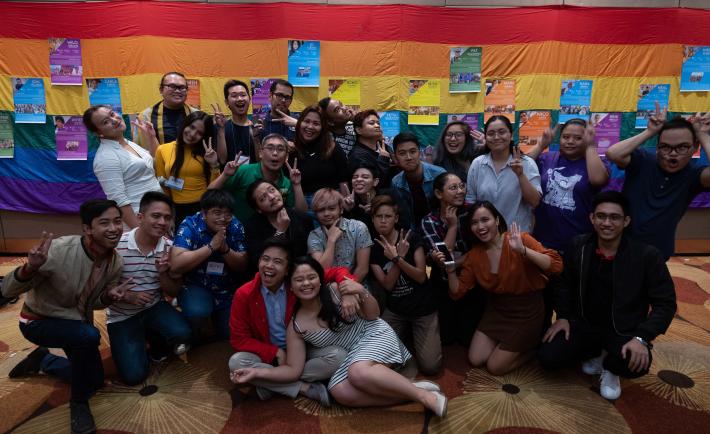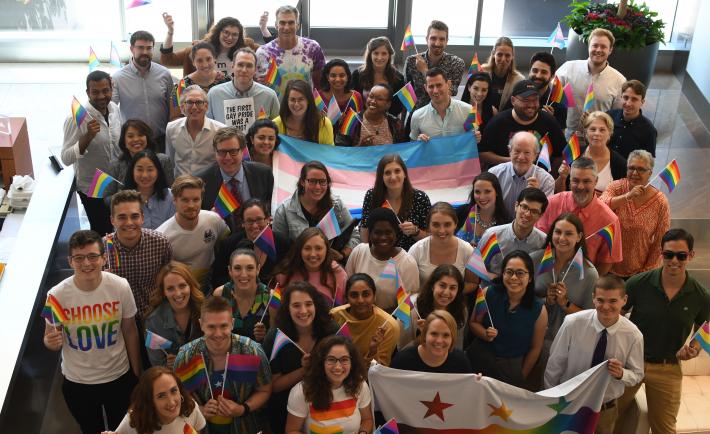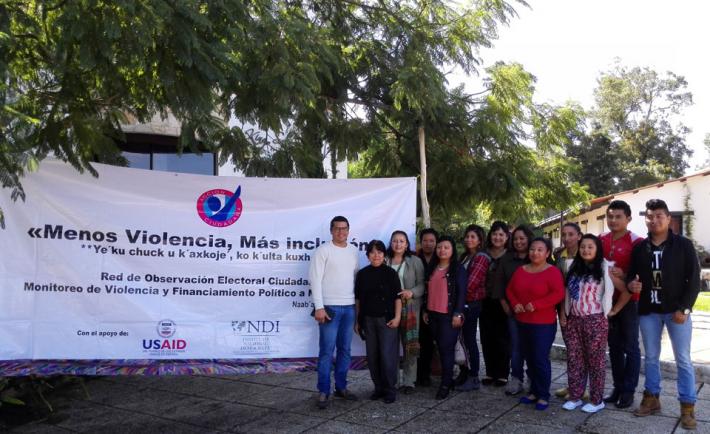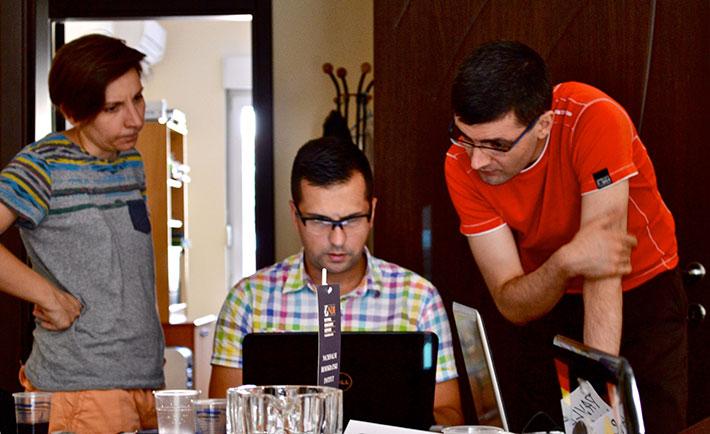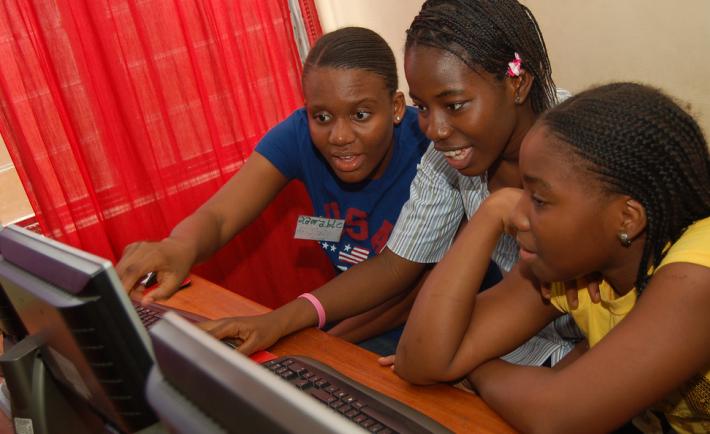Navigating challenging and complex civic spaces is nothing new for local organizations working to advance the rights and inclusion of LGBTI communities. Join NDI Senior Program Officer for Citizen Participation for a conversation with three partners from across the globe working to sustain their advocacy for equality and inclusion, while tackling some of the unprecedented challenges posed by the COVID-19 pandemic.
A Conversation With LGBTI Activists on Community-Building
The good news about Ukraine – and why it deserves our support.
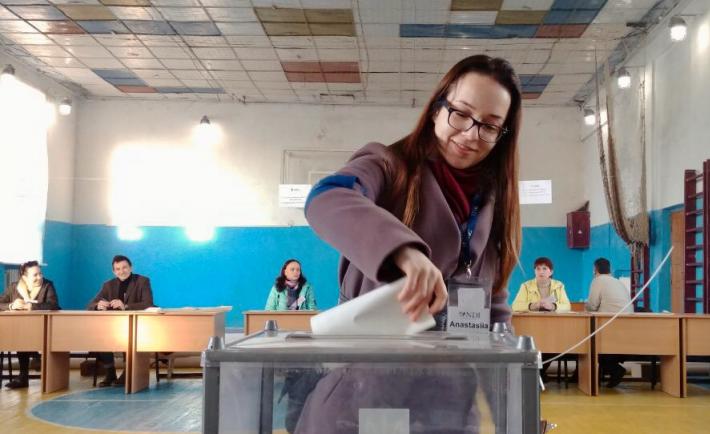
An NDI staff member votes in the March 31, 2019, presidential election, while accompanying international election observers as they observed opening, voting, counting, and tabulation processes in Kyiv and 13 other regions across the country.
Ukraine is all over the news these days, albeit not in a good way. That is unfortunate. The country deserves much more – and favorable – support for its democratic progress and remarkable resilience in the face of economic hardship and unrelenting Russian aggression. Five years after the Revolution of Dignity ushered in a new democratic moment in 2014, Ukraine’s people in fact are as unified as ever in their aspirations for a more democratic, peaceful and corruption-free society.
How do we achieve greater inclusion of LGBTI people in Africa?
In this DemWorks video, we honor Pride Month 2019, which also marks the 50th anniversary of the Stonewall uprising—often referred to as the birth of the modern LGBTI movement. Today, we are speaking with Reverend Ecclesia Delange, executive director of Inclusive and Affirming Ministries (IAM). IAM works to help churches accept and support LGBTI individuals in eight African nations, by working at the intersection of gender, sexual orientation, health and religion.
Election Observers Promote Tolerance and Transparency in Guatemalan Communities
Louis Enrique Borrayo Hernandez is a young Guatemalan man who learned about the election observation through Association Ixim, the local organization that supported Citizen Action’s (AC) observation in the department of Sacatepéquez, just outside of Guatemala’s capital. We recently spoke with Louis, as well as his colleague Theylor (who preferred that we not use his full name), about why they decided to join the AC network as long-term observers. Their answer was clear: “we wanted to make a difference in our community and our country,” they both agreed.
Being LGBTI in Serbia: Can you walk out your door and be proud of who you are?
At a local Belgrade bar in September 2015, a group of assailants attacked a young LGBTI activist named Dragoslava Barzut while she was spending the evening with friends. No one stood up to protect Barzut and her friends that night. She continued to receive threats following the attack. Despite the attack and threats, asylum abroad was not an option for Barzut. She will not leave her country as long as she can be an agent for change even though she feels wary while on public transportation and nervous during her daily commute to work. “I'm not staying here because Serbia is an ideal place for someone like me to live,” she said, “but I deeply believe that if I don’t leave, one day it may be. My fight is here.”
Transforming Thoughts: The Realities of the LGBTI Communities
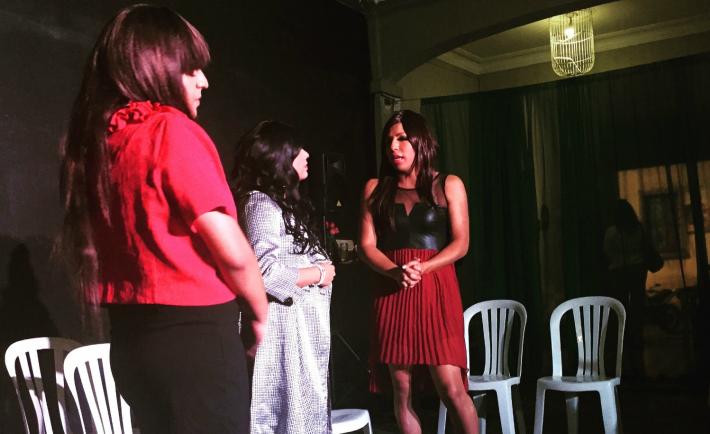
The LGBTI communities in Guatemala uses art to increase tolerance, understanding and political participation.
In the captivating play “Transforming Thoughts: The Realities of the LGBTI Communities,” members of the lesbian, gay, bisexual, transgender, and intersex (LGBTI) communities showed the harsh realities of life as a transgender woman in Guatemala. Drawing on stories from their personal lives, and the broader LGBTI communities, the actors weave together scenes demonstrating lack of opportunity, abuse and survival. I
Q&A: Democracy, Technology and Young African Leaders
On Feb. 10, I took part in a three-day Facebook #YALICHAT with young African leaders – President Obama’s signature effort to invest in the next generation of African entrepreneurs, educators, activists and innovators. After introducing myself and my work in a blog post, I took questions and comments from the YALI Network centered on the role of technology in democracy. Topics included: bridging gaps between youth and politicians online; how technology can improve transparency and government accountability; taking political action; online security; election monitoring; and using technology to empower people to become more involved in politics.

